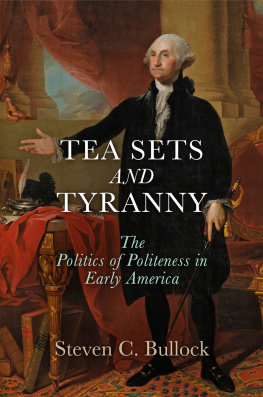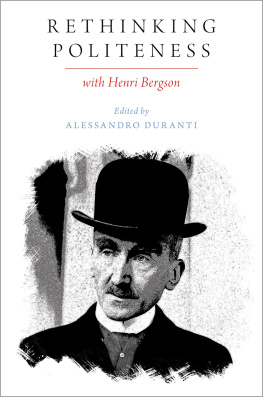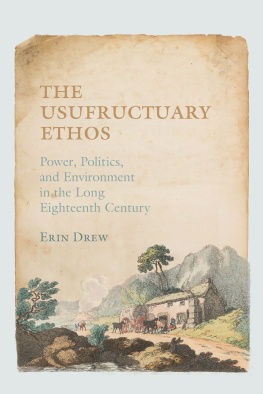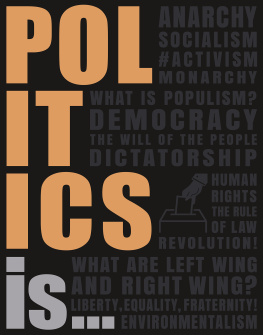
Tea Sets and Tyranny
EARLY AMERICAN STUDIES
Series editors:
Daniel K. Richter, Kathleen M. Brown,
Max Cavitch, and David Waldstreicher
Exploring neglected aspects of our colonial,
revolutionary, and early national history and culture,
Early American Studies reinterprets familiar themes
and events in fresh ways. Interdisciplinary in character,
and with a special emphasis on the period from about
1600 to 1850, the series is published in partnership with
the McNeil Center for Early American Studies.
A complete list of books in the series
is available from the publisher.
Tea Sets and Tyranny

The Politics of Politeness in Early America
Steven C. Bullock
PENN
UNIVERSITY OF PENNSYLVANIA PRESS
PHILADELPHIA
Copyright 2017 University of Pennsylvania Press
All rights reserved. Except for brief quotations used for purposes of review or scholarly citation, none of this book may be reproduced in any form by any means without written permission from the publisher.
Published by
University of Pennsylvania Press
Philadelphia, Pennsylvania 191044112
www.upenn.edu/pennpress
Printed in the United States of America on acid-free paper
1 3 5 7 9 10 8 6 4 2
Library of Congress Cataloging-in-Publication Data
ISBN 978-0-8122-4860-9
In memory of my mother, who loved books and loved me
CONTENTS

FIGURES

Tea Sets and Tyranny
INTRODUCTION

Franklins Footnote
Benjamin Franklin was twelve years old when he was apprenticed to his older brother. It was an unpleasant experience. James, himself only twenty-one, was a difficult young man, as headstrong and argumentative as his younger sibling. The memories still rankled a half century later. In the autobiography he began when he was sixty-five, Franklin complained that James had considered himself as my master, an odd comment since James had been just that, both by time-honored usage and by the cold realities of law. But Franklin expected more. James, he noted, had been passionate and had often beaten him, rather than treating him with more Indulgenceas a Brother. Franklin eventually found the situation so oppressive that he revolted. Taking advantage of a legal technicality, he fled his brothers custody at sixteen.
Almost two decades after writing his original 1770s account, Franklin returned to his manuscript, adding a note explaining the larger significance of his relationship with James. I fancy his harsh and tyrannical Treatment of me, he wrote, might be a means of impressing me with that Aversion to arbitrary Power that has stuck to me thro my whole life.
Franklins footnote clearly recalled the American Revolution that he had done so much to further. Like his brother, Britain had also ignored its family obligations in order to press its prerogatives. The adolescent boy considered himself demeand. So too the mature man. But Franklins addition went beyond individual experiences. His critique of his two would-be masters, his brother and his mother country, reveals an understanding of the connections between social relationships and political rule that had been widely shared for almost a century. Eighteenth-century American leaders such as Franklin had been deeply concerned about the dangers of anger and violence in both political and personal life. Both government leaders and individuals, they held, should reject arbitrary rule in favor of sympathetic concern.
Finding the proper means of restraining power formed a fundamental theme, perhaps the fundamental theme, in eighteenth-century political thought from John Locke to Thomas Jefferson. Recent discussions of the idea often emphasize structural issues, the use of elections and of checks and balances to keep government from being overbearing. But, as Franklins footnote suggests, eighteenth-century Americans considered the problem of limiting authority cultural as well as constitutional, personal as well as political.
This work considers the origins, development, and implications of this connection. It explores how and why views of limited political power developed in conjunction with a model of social relationships stressing personal refinement and emotional restraint. Eighteenth-century discussions about manners were intimately intertwined with fundamental political issues, closely linking politeness (discipline of the self) with power (discipline of others). Conversations about tea sets and tyranny were not precisely the same, but they were not as distinct as they usually seem. Both drew on a politics of politeness that rejected angry demands for obedience and instead sought to build restrained authority through sympathetic and responsive leadership.
Politeness and Its Politics
Politeness and its implications were much on the mind of another Bostonian in 1704, two years before Franklins birth. Jonathan Belcher, the future governor of Massachusetts (and the subject of
The meaning of the metaphor became clearer as Belcher continued. People who had not traveled, he suggested, were socially inept. Handicapped by Selfishness & Sowerness, they were unaccomplishd, & Ignorant about how to handle themselves with other people and particularly with strangers. Only experience remedied these faults. Starting out Sower, peevish, & fretfull, travelers became pleasant, affable & most agreeable, with a flexible & complaisant temper that made them ready to oblige all. Broader experience also encouraged tolerance for other ways and even other religions, a recognition that generally speaking Mankind is much the same.
Belchers account did not use the word polite. It did not need to. His
As these discussions of personal polishing suggest, Belchers praise of travel drew upon ideas circulating widely on both sides of the Atlantic. Just as his journal asserted that travel helped a person learn to behave himself well in Company, an essay reprinted in Franklins newspaper in 1730 suggested similar significance for conversation. The piece, originally from a British magazine, emphasized the importance of Complaisance, calling it the first of two grand Requisites in the Art of Pleasing. The Latin quotation at the start the essay encapsulated the meaning of the termand the central message of the essayin describing a character that sought (in one English translation) to comply with the inclinations and pursuits of those he conversed with. The same passage had earlier been used as an epigraph in the Spectator, the enormously influential London periodical published by Joseph Addison and Richard Steele in 17111712 that popularized the values and attitudes of eighteenth-century politeness. Addisons essay similarly stressed the importance of complaisance, connecting it with the affability and easiness of temper that made up the ideal of good-nature.
These ideas inspired Franklins resolution to give up his early habit of contradicting people and thereby (as he put it in his Autobiography) souring and spoiling the Conversation. This growing sensitivity rejected the example of his passionate brother. The essay he reprinted in 1730 instead celebrated people who were easy, courteous and Affable, qualities highlighted in the title of the international organization of the public-spirited that Franklin proposed about this time, the Society of the
Next page










